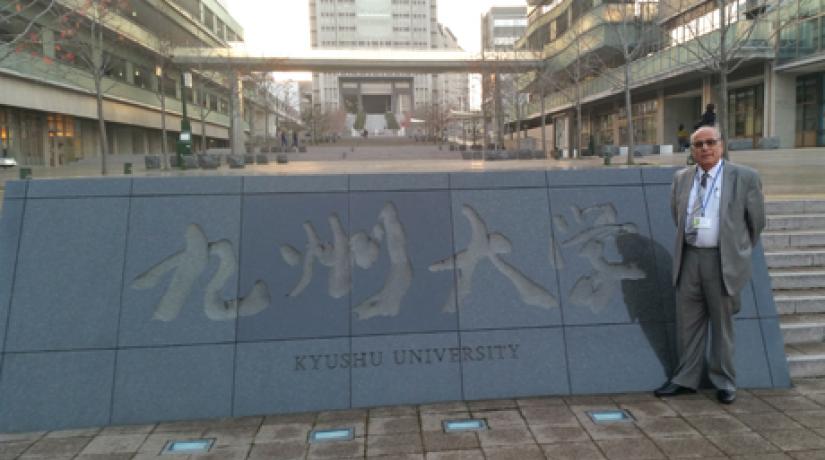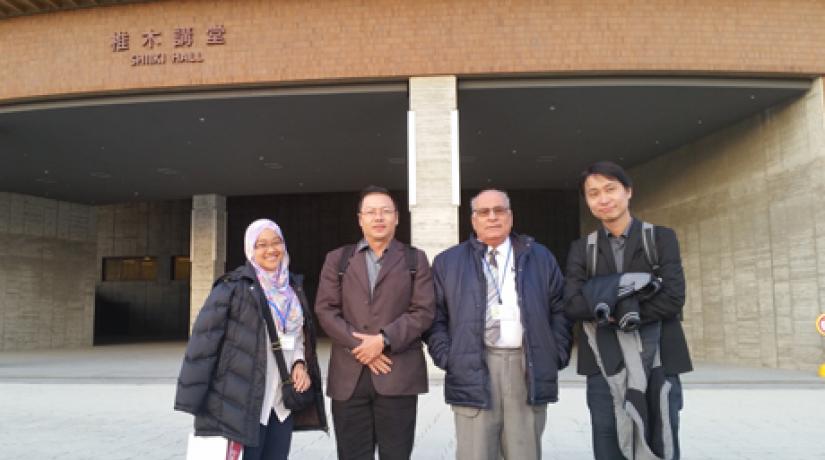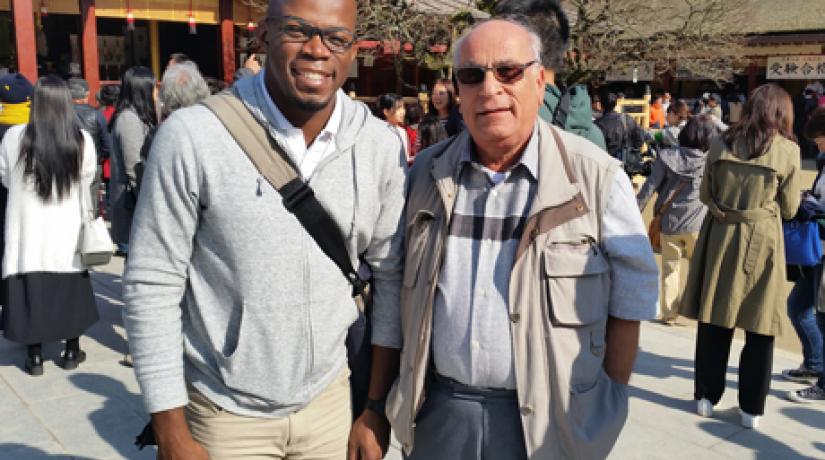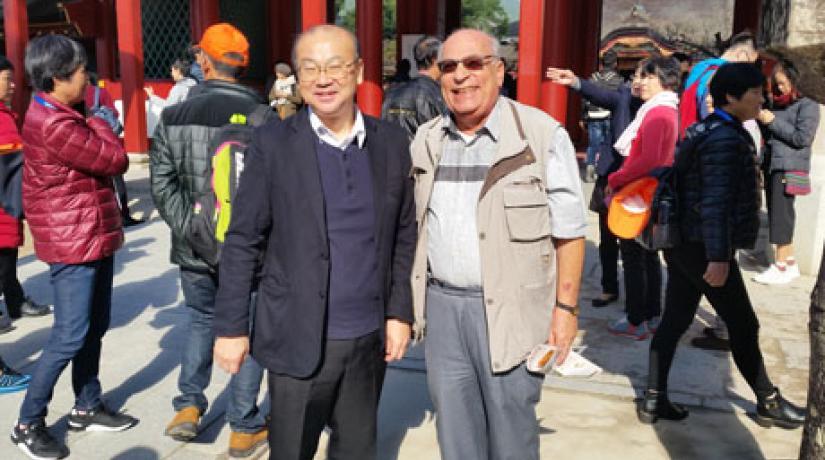2017
10 JanUCSI University academics delivers plenary lecture and walks away with an award at renowned international symposium

KUALA LUMPUR: There is an unprecedented multidisciplinary convergence of scientists dedicated to the study of a world so small, we can't see it - even with a light microscope. That world is the field of nanotechnology, the realm of atoms and nanostructures. For something so small, the implications and breadth of the uses of nanotechnology are vast, ranging from curing cancer to ending world hunger.
For one academician at UCSI University (UCSI), his passion for the world of nanotechnology makes him an esteemed authority in his own right - and the focus of his plenary lecture in the recent Cooperative International Network for Earth Science and Technology (CINEST) 2016.
Professor Dr Hikmat Said AL Salim, a lecturer with the Faculty of Engineering, Technology and Built Environment, had the honour of kick-starting the international symposium with his plenary lecture titled 'Contribution of nanotechnology to oil and gas industry'.
Held in Kyushu University, the fourth Imperial University of Japan, the event saw Professor Hikmat discuss the applications of nanomaterials in oil and gas industries ranging from offering means of mapping reservoirs exploration to increasing the performance of equipment to enhancing oil recovery, with over 200 individuals from international institutions and research centres of global repute.
"Nanotechnology has been attracting a great deal of interest from the oil industry with their enormous potential to provide enhanced performance properties, either by their nanosize or with their ability to significantly alternate optical, magnetic and electrical properties.
"State-of-the-art mapping technologies are still widely used in oil exploration but cannot accurately locate and characterise reservoirs. Conventional electrical sensors and other measuring tools usually fail (or give the wrong information) especially under high temperature and high-pressure environment. With nanotechnology, it is possible to tailor-make a sensor to fulfil a certain operation and to deliver it to the exact spot where it is wanted. We can make the industry considerably greener!" he said.
Professor Hikmat also held the Vice-Chair position on the event's advisory committee.
Founded in 2008, CINEST offers a platform for young researchers to network as well enhance international collaboration to solve both global and domestic problems on mineral resource and environment.
Also present at the symposium was Farhana Binti Abdul Barri, UCSI's Head of Programme for Chemical and Petroleum Engineering, who along with Professor Hikmat and Mahmoud Hikmat, a UCSI Bachelor of Engineering (Hons) Chemical Engineering graduate, received the Mitsui Matsushima Award for Best Poster award for their research titled 'Laboratory Experiments with new breed of surfactants which leaves asphaltenes behind'.
Asphaltenes are a naturally occurring group of complex organic hydrocarbon compounds, have no definite melting point but decomposes when heated, leaving behind a carbonaceous residue.
But why is the present of asphaltenes considered bad?
"Asphaltenes deposition are known for clogging wells, flow-lines, inside safety valves, mask sensors of process control equipment, and hinder surface safety equipment from responding in time," Farhana explained, "Removal of the deposited asphaltenes can be very costly and hence, prevention of deposition is the best solution."
"It is this idea that made us search for a solution. The solution must come from a cheap liquid which does not dissolve asphaltenes but rather, leave it intact while at the same time, capable of pushing other lower molecular weight compounds along the production pipes."
It was Farhana's first time presenting a research poster at a symposium - an international one at that.
"This was an incredible experience for me. I was both nervous and excited to present our findings to a group of experienced researchers. I certainly did not expect to return with an award," she said.
Professor Hikmat, who was incredibly grateful towards the hospitality received from Kyushu University throughout the symposium, thanked the University for extending a fully sponsored invitation to share his knowledge in their lecture halls.
He also thanked Professor Kyuro Sasaki and Assistant Professor Yuichi Sugai, academicians with the Department of Earth Resources Engineering at Kyushu University as well as the Chairperson to CINEST, for being their guide around Fukuoka, Japan.
"I was very moved when Professor Sasaki invited us into his home. It is a rather rare occasion seeing as this is not a common gesture among the locals," said Professor Hikmat. "On behalf of my team, I would like to thank Kyushu University staff, especially Professor Sasaki and Assistant Professor Sugai for the reception and support given to us throughout the conference."
Professor Hikmat was also very thankful towards Ronald Nguele - an alumina of UCSI and a current Ph.D. student in Kyushu University - who played a major role in connecting the two professors, and devoted a lot of his time for the UCSI delegates.
Professor Hikmat headed a group of researchers from UCSI namely Farhana and Associate Professor Dr Tan Khang Wei, who flew to Japan to participate in CINEST 2016.









